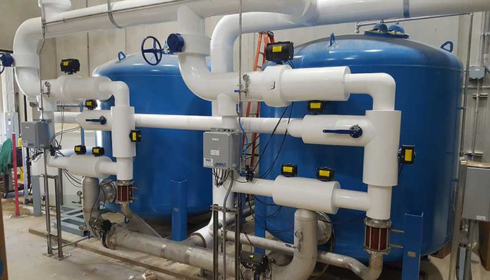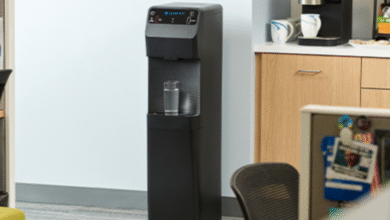Clean Water, Clear Choices: Why Treatment and Maintenance Matter More Than Ever

Water is such a quiet part of daily life that most of us forget how deeply it shapes everything—from the way our coffee tastes in the morning to the life span of our washing machines. We don’t often think about what’s flowing through our taps until something goes wrong: maybe your shower leaves behind chalky streaks, or your office water cooler suddenly tastes metallic. That’s when people start digging into the world of treatment, filtration, and maintenance, and discover there’s a lot more to it than they ever imagined.
The Local Connection
When you start searching for help, you’ll notice one thing quickly—water is personal. The issues in your neighborhood might be completely different from what your relatives face in another state. Some areas are dealing with high chlorine levels, while others wrestle with stubborn iron stains or hard water. That’s why local water treatment companies often have the upper hand over national chains. They understand the quirks of your city’s supply, the minerals hiding in the wells nearby, and the seasonal shifts that can affect taste and quality. They’re not just selling equipment; they’re tailoring solutions for the water you actually live with.
Water in the Workplace
At home, you can probably put up with the odd streaky glass or a filter pitcher that needs changing every few weeks. But in a business setting, water quality becomes a lot more than a minor inconvenience. Restaurants, hotels, schools, and manufacturing facilities all rely on consistent, safe, and great-tasting water. Poor water quality can damage equipment, increase costs, or even hurt a brand’s reputation. That’s where commercial water filtration services step in. These aren’t the little under-the-sink filters most people have at home. They’re large-scale systems designed to keep hundreds of people hydrated safely or ensure entire lines of machinery keep running smoothly without scaling and corrosion.
Why Maintenance Isn’t Optional
Think of your water system like a car. You wouldn’t expect to drive 50,000 miles without an oil change or tire rotation, right? The same goes for water treatment equipment. Filters clog, resin beads in softeners wear out, and UV lights lose effectiveness over time. Scheduling a water softener maintenance service or filter replacement might not sound glamorous, but it saves you from surprise breakdowns and expensive repairs later. Plus, regular checkups make sure your system is still performing as it should, which is especially important if your water source changes slightly from season to season.
The Hidden Costs of Ignoring Water Problems
It’s easy to dismiss water quality issues as minor annoyances. A little limescale here, a faint smell there—it doesn’t seem urgent. But ignoring those problems often comes with hidden costs. Hard water, for instance, quietly shortens the life of appliances like dishwashers and washing machines. Sediment can clog pipes and reduce water pressure. Even something as simple as bad-tasting tap water can drive a family or office to spend hundreds of dollars a year on bottled alternatives. When you add it up, investing in treatment and maintenance usually ends up being the more affordable option.
Technology Has Changed the Game
If your only mental picture of water treatment is those giant salt bags stacked in a garage, you might be surprised at how much technology has advanced. Modern systems are smarter and more efficient. Some units connect to Wi-Fi, sending alerts when it’s time for service. Others are designed to waste less water during regeneration cycles, making them more eco-friendly. Filtration media has improved, too, tackling everything from pesticides to microplastics. The point is, this isn’t a one-size-fits-all world anymore—whether you’re in a small apartment or running a busy bakery, there’s a system out there built for your needs.
Choosing the Right Partner
Shopping for water treatment can feel overwhelming because, let’s be honest, the industry is full of jargon. Reverse osmosis, ion exchange, UV disinfection—these words don’t mean much unless you’re an engineer. That’s why it’s important to find a provider who speaks human. The best companies will explain your options in plain language, break down the pros and cons, and help you choose based on lifestyle, budget, and goals instead of pushing the most expensive system on the shelf. Reading reviews, asking neighbors, and even requesting water tests before committing can help you find that trustworthy partner.
The Residential vs. Commercial Divide
Residential systems focus on comfort and convenience—better showers, cleaner laundry, longer-lasting appliances. Commercial systems, meanwhile, are about compliance, consistency, and protecting expensive infrastructure. But the two worlds aren’t completely separate. Small business owners often find themselves somewhere in between. A coffee shop, for example, doesn’t need industrial-sized treatment, but it does need water that won’t ruin the flavor of every latte served. That’s why flexibility and customization are key when working with treatment providers.
Small Habits That Make a Big Difference
Even with the best equipment, your habits matter. Changing pre-filters on time, checking salt levels in a softener, or simply cleaning aerators on faucets can extend the life of your system and improve water quality. It’s the little things—like remembering to schedule an annual checkup or flushing out a hot water heater—that often prevent the big, messy, and expensive emergencies. Water is invisible until it isn’t, so staying a step ahead pays off.
A Future Focused on Sustainability
Another angle that’s shaping the industry is sustainability. More homeowners and businesses are asking questions about waste, energy use, and environmental impact. Old systems often used a lot of salt and discharged brine into drains, but new models are being designed with efficiency in mind. Some use alternative filtration methods that don’t rely on chemicals. Others recycle water during cleaning cycles. As demand grows for greener living, treatment companies are responding with better options that balance health, performance, and planet-friendly practices.
The Takeaway: Don’t Wait Until It’s Urgent
Here’s the truth: most people only think about water treatment when something’s already gone wrong. But the smartest move is to be proactive, not reactive. Whether you’re a homeowner tired of scrubbing stubborn stains, or a business owner trying to protect your brand, investing in good treatment and steady maintenance is less about luxury and more about common sense. Clean water supports everything—health, comfort, reputation, and even savings in the long run.
So maybe the next time you take a sip straight from the tap, pause for a moment. That clear, refreshing glass didn’t just happen. Somewhere behind the scenes, there’s a system working hard to make it possible. And with the right care, it’ll keep doing its job for years without you even noticing—which is exactly the point.




